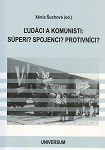Limity púsobení ľuďáckého odborového hnutí ve 30.letech
Limited Effects of Slovak People’s Party Trade Unions in the 1930´s
Author(s): Jakub Rákosník
Subject(s): Economic history, Interwar Period (1920 - 1939), History of Communism
Published by: SAV - Slovenská akadémia vied - Historický ústav SAV
Keywords: Christian Social Trade Union Association of Workers; Slovak Christian Socialists; Slovak People’s Party;
Summary/Abstract: This article is concerned with the position of Christian Socialist trade unions interrelated with Hlinka´s Slovak People’s Party within the Czechoslovak Labour movement in the 1930´s. During this period, the Slovak Christian Socialist trade unions were relatively weak and the growth of their membership was relatively slow in comparison with their rivals. Their weakness was caused by a number of both structural and political factors. The most important one stemmed from the structure of population which, in comparison with the Czech lands, showed fewer employees. So, their success was dependent on nationalism of Hlinka’s Slovak People´s Party and its trade union central. Another cause of their weakness was in their main rivals (Social Democratic and Communist unions), able to operate throughout the country. Moreover, the Communists managed to effectively use the Nationalist rhetoric and the Czech radical Nationalist trade unions (National Democratic) ran their organizations in Slovakia with relative success. Unlike their rivals, the Slovak Christian Socialist trade unions neither had nor wanted to have their organisations in the Czech lands. Furthermore, the Christian Socialist trade unions did not seem to be able to undermine the firm position of the left-wing political parties held in major factories in Slovakia at that time. They gained power only after the prohibition of other trade unions in 1939.
Book: L'udáci a komunisti: Súperi? Spojenci? Protivníci?
- Page Range: 88-101
- Page Count: 14
- Publication Year: 2006
- Language: Slovak
- Content File-PDF

